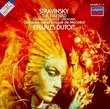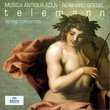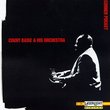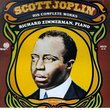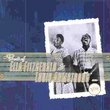| All Artists: George Templeton Strong, Adriano, Moscow State Symphony Orchestra, Moscow Symphony Orchestra Title: George Templeton Strong: Symphony No. 2 "Sintram" Members Wishing: 0 Total Copies: 0 Label: Naxos American Release Date: 12/15/1998 Genre: Classical Styles: Forms & Genres, Concertos, Symphonies Number of Discs: 1 SwapaCD Credits: 1 UPC: 636943901823 |
Search - George Templeton Strong, Adriano, Moscow State Symphony Orchestra :: George Templeton Strong: Symphony No. 2 "Sintram"
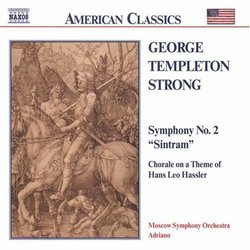 | George Templeton Strong, Adriano, Moscow State Symphony Orchestra George Templeton Strong: Symphony No. 2 "Sintram" Genre: Classical
|
Larger Image |
CD DetailsSimilarly Requested CDs
|
CD ReviewsGrand and Interesting, But Is It Great? Timothy Dougal | Madison, Wi United States | 01/18/2003 (4 out of 5 stars) "Somewhere between Lizst and Richard Strauss, but more expansive than either, with dashes of Tchaikowsky, Sibelius and others (or did he influence them?), lies the music of the late 19th-early 20th century American, working in Europe, George Templeton Strong. Championed by Toscanini and others, his music is little known now, possibly in part because, though American, there is nothing recognizably American about his music, and partly because of the towering figures of Strauss, Mahler, Bruckner and Sibelius who surround him. This disc contains an hourlong symphony/symphonic poem, and a 7-minute elegiac chorale for strings. The symphony is programmatic, chronicling the struggle and triumph of humanity. It's often thrilling, often grand and intense, but my personal jury is still out on the greatness of the work. As a side issue, the 3rd movement sounds like it may have been the inspiration for 'The Sorcercer's Apprentice'. The recording is very good, as is the conducting of Adriano, although occasionally I have the sense of missed dramatic opportunities. Definitely worth a listen, though!" Very interesting piece of Americana! mahlerii@aol.com | Richfield, MN | 04/13/1999 (5 out of 5 stars) "One in a series of American Classics CD's from Naxos, this is actually a second recording. This Symphony is very progromatic, reminding me of the Berlioz Symphonie Fantastique, as it portrays the struggle between good and evil. The Moscow Symphony under Adriano play this symphony with passion and fire and do not over-do the histronics which makes this symphony work. Good sound quality without being outstanding." Superb! Patrick W. Crabtree | Lucasville, OH USA | 02/03/2008 (5 out of 5 stars) "If you're a fan of Hovhaness, Hindemith, and/or Virgil Thomson, you'll very much like this excellent music.
I don't know why Strong isn't incredibly more popular than he is -- one rarely hears about him these days. He was an American composer, (who lived mostly in Switzerland), who died in 1948 at the ripe old age of 92. He was known for jumping back and forth between creating watercolors and composing works of music, which I suspect are quite representative of his paintings. Symphony No. 2 was Strong's biggie and what a fine symphony it is, melodic yet modern, and clearly representative of classical music in the 20th Century. While it follows the essential formatting of a symphony, the first two movements are not especially like the latter two; however, the entire work has the feel of a tone poem, very atmospheric. The second piece on this CD "The Theme," is similar in nature although it was written much earlier in Strong's career. It's a bit of a fantasia as well. The Moscow Symphony Orchestra does a fine job with this one -- nice and tight. And Naxos captured their essence perfectly -- great sound. One gets an impression that the orchestra very much enjoyed playing these pieces. I bought my copy of this CD from Arkiv Music on a clearance sale and I'm so glad that I did. My highest recommendation for these fine compositions." |

 Track Listings (5) - Disc #1
Track Listings (5) - Disc #1